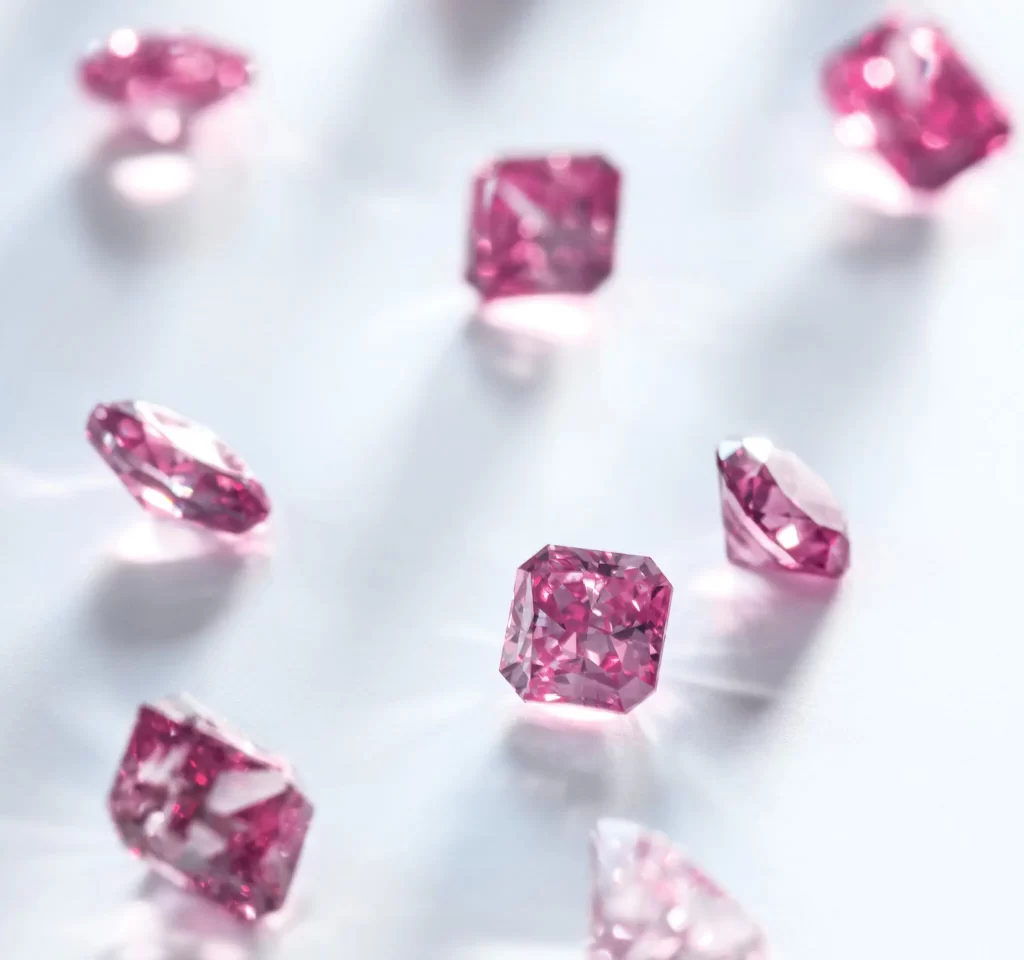
The new Tiffany Collection comprises 35 gems, including an unusual red stone, from the Argyle Diamond Mine in Australia.
About a year ago, a representative of the Argyle Diamond Mine — a site in Western Australia that was the pre-eminent source of pink diamonds until it closed in 2020 — approached Tiffany & Company’s chief gemologist with an unusual offer: the chance to purchase a collection of diamonds that were among the last stones taken from the mine.
The decision, Tiffany executives said, didn’t require much consideration.
“We had to do it,” Anthony Ledru, the brand’s president and chief executive, said in his bright office in New York’s Flatiron district. “It’s perfect with what we stand for.”
The purchase, which was finalized several months ago, involved 35 diamonds of various shades: pink, almost purple and even one red gem, an especially unusual color for a diamond. The gems, which had already been cut in various styles, “checked off all of those boxes: rarity, scarcity and beauty,” said Victoria Reynolds, Tiffany’s chief gemologist.
But the stones are small, ranging from 0.35 carats to 1.52 carats, considerably more petite than the statement-size gemstones frequently used in engagement rings and solitaire necklaces.
“These are small, there’s no doubt,” Ms. Reynolds said, “but for connoisseurs, collectors who understand how rare these are, it’s incredibly appealing.”
How much did the jeweler pay for what it now calls the Tiffany Collection? Mr. Ledru wouldn’t disclose the sum, but said it was “probably not enough compared to what it’s going to become in the next five, 10 years.” (He did note that it was Tiffany’s largest single purchase of 2022.)
Exactly how the diamonds will be used in jewelry hasn’t been decided, although Mr. Ledru said it was likely that they all would be used in one-of-a-kind designs. In the meantime, the diamonds are being shown to select clients in New York City and, next month, in Doha, the capital of Qatar.
The eventual prices are sure to be high. “You pay a premium for anything that says ‘Argyle pink diamond,’” said Renée Newman, an independent gemologist and author based in Los Angeles.
Source: NYT




